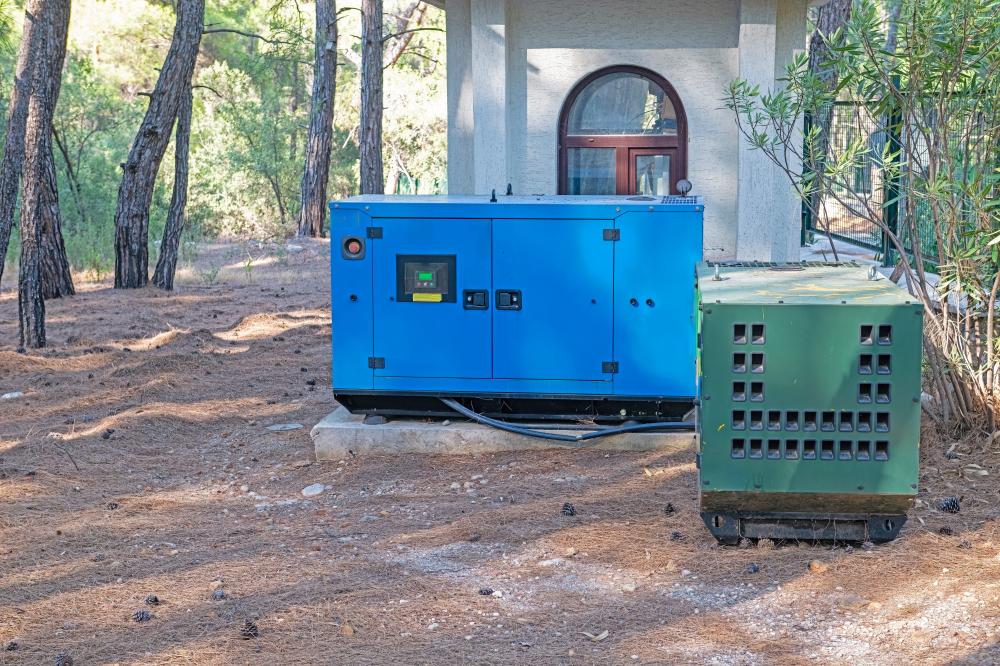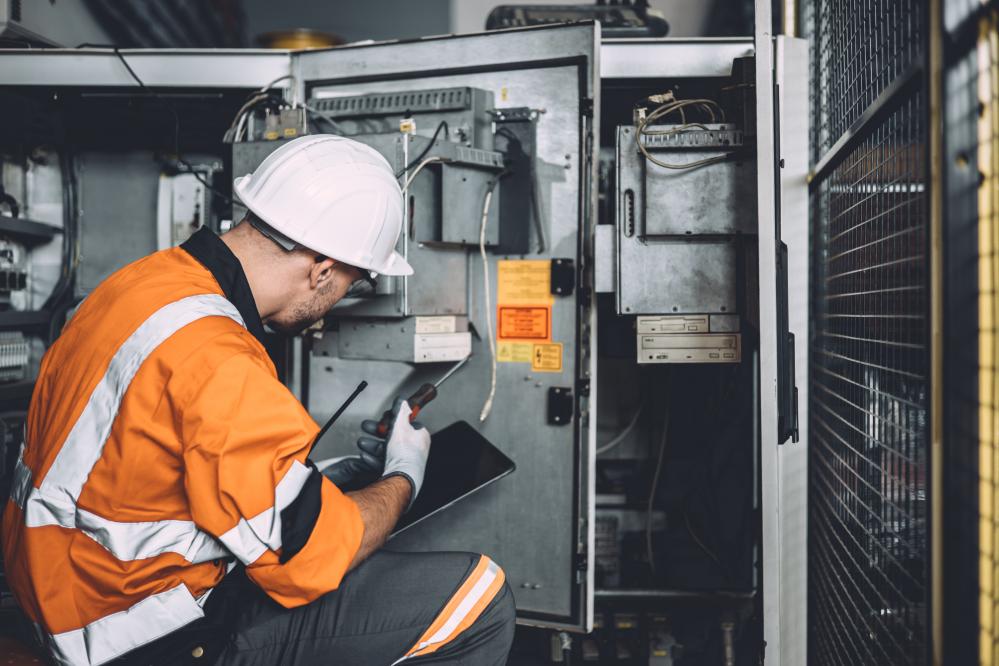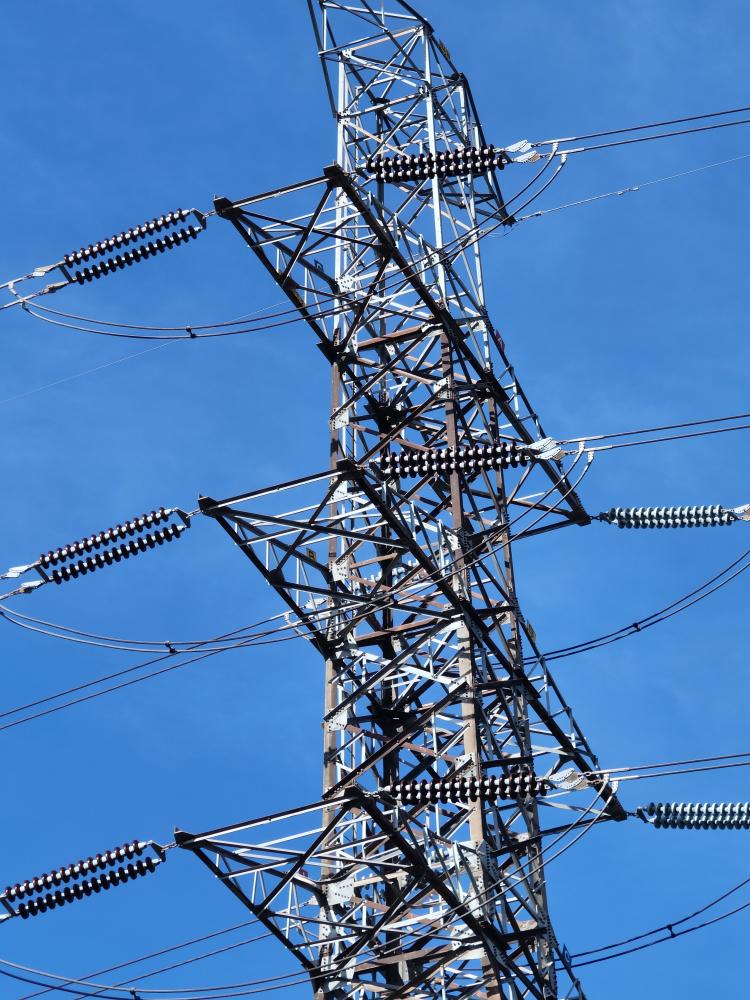
Understanding the Importance of Backup Generators for Businesses
In today's fast-paced business environment, having a backup power solution is not just a luxury—it's a necessity. Power outages are unpredictable and can disrupt operations, jeopardizing data, productivity, and even customer safety. Backup Generators for Businesses serve as a crucial safety net. They ensure continuous power supply during outages, protecting companies from unforeseen downtime. In my experience with various electrical installations, clients often expand their generators to ensure all critical systems remain operational even during extended outages.
When considering Backup Generators for Businesses, it's essential to evaluate your power needs thoroughly. Each business operates differently, and an office building's needs will greatly differ from those of a manufacturing plant. By understanding specific requirements, you can select an appropriate generator that covers essential operations without overloading the system.
Reliability is another crucial aspect of Backup Generators for Businesses. A well-maintained generator can make all the difference during an emergency. Regular checks and timely maintenance help in ensuring their readiness whenever needed. This proactive approach often saves businesses from the financial implications of unexpected power failures.
Types and Fuel Options for Backup Generators
There are several types of Backup Generators for Businesses, each suited to different needs and circumstances. Stationary generators are the workhorses for permanent installations, capable of powering entire facilities. On the other hand, portable generators offer flexibility, which is ideal for temporary needs or remote sites. It's worth noting that the choice between stationary and portable generators should align with a business's operational model and scalability plans.
The type of fuel used by Backup Generators for Businesses also plays a significant role in decision-making. Diesel and natural gas are popular choices due to their reliability and availability. Diesel is known for its durability and quick startup capabilities. However, some businesses prefer natural gas for its cleaner emissions and easier storage options. I've seen businesses opt for propane when there's a need for quiet operations or long-term fuel storage.
Choosing a fuel type might also depend on environmental considerations and local regulations. By aligning with eco-friendly practices, businesses can not only reduce their carbon footprint but also potentially qualify for incentives.
In my professional experience, discussing fuel type preferences with clients has often led to innovative, custom solutions that address both operational efficiency and environmental impact.
Determining the Right Size for Your Generator
The size of Backup Generators for Businesses is an important factor that ensures optimal performance during outages. Oversizing a generator can lead to unnecessary costs, while undersizing might not meet critical power requirements. Calculating the correct size involves understanding full load capacity, peak usage, and operational needs.
One effective method for determining generator size is evaluating historical energy usage. By examining peak usage times and wattage requirements of essential systems, businesses can create a detailed profile of their power needs. I've often guided clients to consider both current operations and potential growth, as future-proofing can provide significant cost savings in the long term.
Another consideration is the type of power used in the facility—single-phase or three-phase. For smaller businesses, single-phase generators may suffice, but larger industries often require three-phase generators to handle more substantial loads efficiently.
In conversations with our clients, we've emphasized the importance of consulting with professionals during the sizing process. It ensures accuracy and helps avoid costly mistakes that can impact daily operations.
Installation and Maintenance Considerations
Proper installation of Backup Generators for Businesses is vital to ensure their effective operation. Placement is key; generators should be located to minimize noise and emissions impacts while ensuring easy access for maintenance. Indoor installations may require soundproofing and vibration isolation measures to protect other equipment.
Regular maintenance cannot be overstated when discussing Backup Generators for Businesses. Routine checks, load tests, and fuel inspections ensure the generator is always ready to perform. In my experience, businesses that commit to a regular maintenance schedule often see fewer issues and longer generator lifespans.
Professional installation and maintenance services offer the best security against unforeseen generator failures. Establishing a relationship with a trusted service provider ensures timely intervention and expert advice, which can be crucial during power interruptions.
Ensuring Business Continuity and Managing Costs
Backup Generators for Businesses are not just about responding to power outages; they're also about ensuring business continuity and safeguarding revenue streams. Every hour of downtime can translate to significant financial losses, making generators a sound investment for uninterrupted operations.
While the initial cost of purchasing and installing Backup Generators for Businesses might seem daunting, the long-term savings and protection they offer are undeniable. Many businesses find that the peace of mind provided by a stable power backup system outweighs initial expenditures. Additionally, exploring financing options and incentives can help manage upfront costs.
Ultimately, Backup Generators for Businesses are a critical component of a comprehensive risk management strategy. By prioritizing reliability and efficiency, businesses can continue to thrive even when faced with unexpected challenges.

Understanding Commercial Backup Power Systems
In commercial settings, reliable power is non-negotiable. It's essential to have a robust backup system. As someone deeply invested in electrical services, I have witnessed how pivotal commercial backup power systems have become. These systems encompass a variety of technologies, from traditional generators to modern battery solutions. Each comes with its unique advantages and challenges.
Many businesses rely on commercial backup power systems to maintain operations during unexpected outages. This ensures that critical functions remain unaffected, protecting both productivity and revenue. During an outage, these systems activate instantly, providing seamless power continuity. The choice between systems depends on energy needs and budgetary constraints. Some businesses prefer the modernity of battery backups, while others trust the proven resilience of generators.
Advantages of Modern Battery Systems
Battery systems are gaining popularity in commercial settings. They offer a cleaner alternative to traditional diesel generators. We see them as environmental champions, producing zero emissions and operating quietly. This makes them ideal in busy urban areas like Beverly Hills, where noise pollution is a concern.
Moreover, battery systems help businesses achieve energy independence. They store energy from the grid or renewable sources like solar panels. This stored energy can be used during peak consumption times or outages. Thus, they not only serve as backup power sources but also contribute to reducing electricity costs over time. We have found this dual functionality to be an attractive feature for many clients.
The Reliability of Traditional Generators
While battery systems are innovative, commercial backup power systems often still include traditional generators. Their capacity to run for extended periods during outages makes them invaluable. They derive energy from fuels like diesel or natural gas, ensuring continuous operation as long as the fuel supply is maintained.
Generators are particularly useful in industries where power demands are extremely high. These include hospitals, data centers, and manufacturing plants. Each of these sectors benefits from the reliable and robust power that generators provide. Despite higher maintenance needs and fuel costs, the peace of mind they offer in terms of reliability is unmatched.
Incorporating commercial backup power systems like generators remains a staple for many businesses that cannot afford any downtime.
Installation and Maintenance Considerations
The installation of commercial backup power systems requires professional expertise. As an electrical service provider, we've encountered numerous scenarios where careful planning is essential. Safety and efficiency are paramount during installation. Engaging with professional teams ensures that the systems are integrated into existing infrastructures without issues.
We advise regular maintenance checks for these systems. This guarantees their functionality when needed. Battery systems typically require less maintenance than generators. However, they do need periodic assessments to ensure optimal performance. Generators, conversely, necessitate more frequent servicing to keep them running efficiently.
Through our experience, we emphasize the importance of understanding the specific requirements of each commercial site. This aids in selecting suitable commercial backup power systems and planning proper maintenance schedules.
Emerging Trends in Power Systems
Commercial backup power systems continue to evolve. There is a noticeable shift toward sustainable energy solutions. Companies now prefer systems that integrate renewable energy sources. Solar-powered batteries are especially popular for their eco-friendly appeal. This trend aligns with a broader societal push towards sustainability.
Another significant trend is the incorporation of smart technology within power systems. Innovations allow for remote monitoring and management, enhancing overall efficiency. These systems detect potential issues before they escalate, offering predictive maintenance capabilities.
As a leader in electrical services, we stay informed of these advancements. Staying at the forefront allows us to provide clients with updated, cutting-edge solutions.
Importance of Emergency Power Solutions
Living in Beverly Hills, we know that power outages can disrupt daily routines. Emergency Power Solutions offer peace of mind, ensuring that homes and businesses remain operational during unforeseen power interruptions. From keeping your lights on to powering essential appliances, these solutions are indispensable.
Our team at Beverly Hills Electrician Pros is passionate about providing reliable Emergency Power Solutions to our community. By ensuring homes have a standby generator or battery backup, we help you avoid the inconveniences that come with unexpected outages. Our priority is to maintain the comfort and security of your home, even when the grid is down.
Moreover, it is crucial to consider the long-term benefits of installing Emergency Power Solutions. Not only do they minimize disruption, but they also protect your home from potential hazards caused by power interruptions, such as frozen pipes or food spoilage.
Choosing the Right Emergency Power Solution
Selecting the right Emergency Power Solutions for your home depends on various factors. It’s essential to assess your power needs and the frequency of outages in your area. Our expert electricians take you through this process, ensuring that your solution matches your specific requirements.
Whether you're opting for a whole-house generator or a portable option, the size and capacity of the system must be appropriate. Our team provides guidance on the best solutions, offering systems that cater to both small-scale needs and larger, more complex setups. This personalized approach ensures optimal performance and reliability.
Installation and Maintenance Expertise
Proper installation and maintenance of Emergency Power Solutions are vital for their efficiency and longevity. Our skilled electricians at Beverly Hills Electrician Pros pride themselves on their expert installation services. We ensure that every system is set up correctly, following all safety protocols for optimal performance.
Regular maintenance is equally important. We offer comprehensive services, including routine checks and repair work, to keep your systems running smoothly. Our maintenance services increase the lifespan of your Emergency Power Solutions, saving you from unexpected costs and failures.
We also provide quick response times for any emergencies, ensuring that power disruptions are rare and short-lived. Our ongoing commitment to excellence guarantees that you receive only the best from our dedicated team.
Innovative Technologies in Emergency Power
The world of Emergency Power Solutions is constantly evolving. With advancements in technology, the options available today are more efficient and environmentally friendly than ever before. At Beverly Hills Electrician Pros, we are always exploring the latest innovations to bring the best solutions to our clients.
Lithium Iron Phosphate batteries, for example, are becoming increasingly popular due to their longevity and efficiency. These batteries offer a safe, reliable option for backup power, maintaining energy levels for an extended period. By staying ahead of the curve, we ensure that our clients benefit from the most robust and sustainable power solutions available.
Personalized Customer Service
At Beverly Hills Electrician Pros, customer satisfaction is at the heart of everything we do. We believe that providing Emergency Power Solutions goes beyond technical installations. It involves understanding the unique needs of every client and delivering bespoke services that exceed expectations.
Our approach is personal and attentive, ensuring open communication from the initial consultation to the final installation and beyond. We take the time to educate our clients, empowering them to make informed decisions about their Emergency Power Solutions. This dedication to personalized service builds trust and long-lasting relationships with the community we serve.

Which generator is best for business?
Choosing the right generator for your business depends on several factors, including power needs, budget, and operational environment. At Beverly Hills Electrician Pros, we often recommend stationary generators for businesses with high power requirements, such as manufacturing facilities or hospitals, because they offer robust and reliable power solutions. These generators are designed for permanent installation and can handle substantial loads for extended periods.
For businesses with less critical power demands or those located in areas with infrequent outages, a portable generator might be a more cost-effective solution. Portable generators offer flexibility and can be used across multiple sites, which is particularly useful for temporary setups or remote locations.
We always advise our clients to assess their specific business needs with a professional to ensure the right type of generator is selected. A critical step is to evaluate both current power needs and potential future growth to make an informed decision.
What size generator do I need for my business?
Determining the appropriate size for a generator is crucial to ensure it meets your business's power requirements without incurring unnecessary costs. At Beverly Hills Electrician Pros, we advise businesses to start by evaluating their total energy consumption and identifying which systems are essential during a power outage.
A good rule of thumb is to look at your business's peak energy usage and select a generator that can handle at least that amount. This requires an understanding of your full load capacity and peak power demands. For instance, if your business peaks at 50 kW, choosing a generator with slightly more capacity, say 60 kW, provides a buffer for unexpected surges.
Consulting with a professional who can perform a detailed load analysis is invaluable. It helps avoid undersizing or oversizing your generator, both of which can lead to inefficiencies and increased costs.
How much does it cost to install a commercial generator?
The cost of installing a commercial generator can vary significantly based on several factors, including the generator's size, type, and the specific installation site conditions. Generally, businesses can expect to invest anywhere from a few thousand to several tens of thousands of dollars.
At Beverly Hills Electrician Pros, we emphasize the importance of considering not just the upfront purchase price but also the installation and ongoing maintenance costs. For example, a large stationary generator might have higher installation costs due to the complexity of integrating it into existing systems, but it may offer lower operational costs over time due to its efficiency and reliability.
We collaborate closely with our clients to explore financing options and potential incentives, such as state or federal rebates, which can significantly offset the initial expense. Ultimately, the goal is to balance cost with reliability to ensure business continuity.
How much does a generator for a 2000 square foot house cost?
For a 2000 square foot house, the cost of a generator largely depends on the type of generator and its power output. Typically, a whole-house standby generator for this size can range from $3,000 to $5,000, not including installation. Portable generators are generally less expensive, often falling in the range of $500 to $1,500.
At Beverly Hills Electrician Pros, we guide homeowners through the process of selecting a generator that matches their specific needs and budget. It's crucial to consider factors like the frequency of outages, as well as the need to power essential systems like heating, cooling, and major appliances. For homes in areas prone to regular outages, investing in a reliable standby generator might be more cost-effective in the long run.
Installation costs can vary based on how integrated the generator needs to be with existing electrical systems and whether additional work, like trenching or fuel line installation, is necessary. We recommend getting a detailed quote from a trusted professional to understand the full cost implications.
How do commercial backup power systems differ from residential ones?
Commercial backup power systems tend to be more complex and higher capacity than residential systems, primarily because businesses often have more extensive power needs and greater operational demands. At Beverly Hills Electrician Pros, we’ve noted that commercial systems need to support critical infrastructure, such as data centers, HVAC systems, and industrial machinery, which require higher power outputs than typical home appliances.
Moreover, commercial systems often integrate advanced features like automated power management and remote monitoring, which aren’t usually necessary for residential setups. These features ensure that businesses can maintain operations seamlessly during an outage and reduce downtime significantly.
One of the key differences also lies in maintenance. Commercial systems typically require more stringent maintenance protocols due to their critical role in business operations. As such, businesses usually establish service contracts with professional providers to ensure ongoing reliability and efficiency.
Are you curious about how a commercial system could specifically benefit your business model? Let's discuss the specifics and find a tailored solution that meets your unique needs.
What are the benefits of emergency power solutions for businesses?
Emergency power solutions are indispensable for maintaining business continuity during unexpected power outages. At Beverly Hills Electrician Pros, we’ve seen first-hand how these systems can prevent revenue loss by keeping critical operations running seamlessly. For instance, a restaurant can avoid food spoilage, and a retail store can maintain customer transactions, even when the grid is down.
These solutions also protect businesses from potential operational hazards. In industries like healthcare, where life-support equipment must be operational, having a reliable backup can be a matter of life and death.
Moreover, investing in emergency power systems can also offer long-term cost advantages by potentially reducing insurance premiums and mitigating financial risks associated with business interruptions.
Thinking about how these solutions could safeguard your business during the next unexpected outage? Let’s delve into the options available and explore how we can enhance your business's resilience to power disruptions.
#### Resources Section for Backup Generators Article- U.S. Department of Energy – The U.S. Department of Energy provides comprehensive information on energy policies, including guidelines and best practices for backup power systems in businesses and commercial settings. Visit their homepage.
- Federal Emergency Management Agency (FEMA) – FEMA offers valuable resources and guidelines for preparing businesses and homes for emergencies, including power outages and backup power solutions. Visit their homepage.
- National Institute of Standards and Technology (NIST) – NIST provides detailed standards and recommendations for electrical systems and backup power solutions, ensuring safety and efficiency in commercial applications. Visit their homepage.
- Environmental Protection Agency (EPA) – The EPA offers guidance on eco-friendly practices for businesses, including information on cleaner fuel options for backup generators. Visit their homepage.
- Occupational Safety and Health Administration (OSHA) – OSHA provides safety standards and regulations for the installation and maintenance of backup generators to ensure workplace safety. Visit their homepage.
- Energy Information Administration (EIA) – The EIA offers data and analysis on energy consumption and trends, which can aid in making informed decisions about backup power needs. Visit their homepage.




